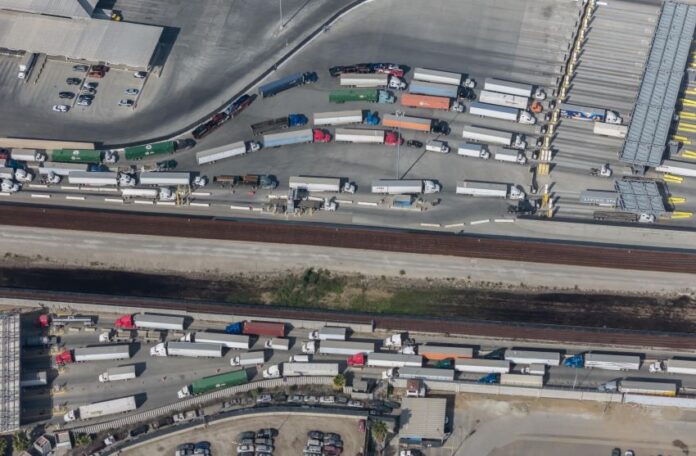The influx of cross-border workers from Mexico’s Baja California state to the U.S. has dropped by 20% between January 2024 and March 2025, the National Institute of Statistics and Geography (INEGI) reported on Friday.
INEGI’s 2025 National Survey of Occupation and Employment showed that Baja California residents who commute regularly to work in Southern California stood at 87,190 in the first quarter of 2024 before falling to 82,421 in the second quarter and to 71,471 in the third. Figures rose to 72,000 commuters in Q4, before falling to 70,642 in Q1 of 2025.
According to real estate industry representatives, the drop in cross-border traffic could create an imbalance in the Tijuana economy due to a decrease in both residential and commercial tenants.
Nine out of every ten Baja California residents who work and study in the U.S. reside in Tijuana and Mexicali, making this group the area’s most important real estate market.
However, the tougher immigration environment and overall fear among the Mexican community in the United States have impacted the number of people willing to risk the commute from Tijuana to San Diego.
A series of high-profile immigration raids in San Diego county recently has only added to concerns about the economic impacts of reduced cross-border mobility on both sides of the border.
Last week, San Diego County lawmakers Brian Jones and Laurie Davis signed a letter addressed to U.S. President Trump, which asked the current administration “to avoid the kinds of sweeping raids that instill fear and disrupt the workplace.”
“We have heard from employers in our districts that recent ICE raids are not only targeting undocumented workers, but also … those with legal immigration status,” the letter reads. “This fear is driving vital workers out of critical industries, taking California’s affordability crisis and making it even worse for our constituents.”
A 2024 study on international commuters at the Mexico-U.S. border found that between 2000 and 2020, the number of cross-border workers living in Tijuana grew by 30%, and the share of U.S.-born within this group increased substantially.
In 2020, cross-border workers accounted for 7.3% of the wage bill of Mexico’s northwestern border municipalities, down from 8.4% in 2000.
Remittances fell 4.6% in May
Remittances sent to Mexico from the U.S. fell by 4.6% in May compared to one year earlier, according to central bank data published on Tuesday.
A recent legislative proposal to collect a 3.5% tax on remittances was cited as the main reason for the decrease.
Total remittances stood at US $5.36 billion (100.5 billion pesos) in May, consisting of 13.9 million transactions averaging $385 each.
On Tuesday, the U.S. Senate passed a bill establishing a 1% tax on remittances, though only those sent in cash.
In Mexico, cash makes up 1% of all remittances received, though remittances sent electronically via cash deposit (at a Western Union, for example) may account for up to 40% of all remittances sent from the U.S. to Mexico.
Mexico’s President Claudia Sheinbaum said that if signed into law, the Mexican government would announce on Friday a program to reimburse the 1% lost to the tax on cash transactions.
With reports from El Imparcial and Reuters
